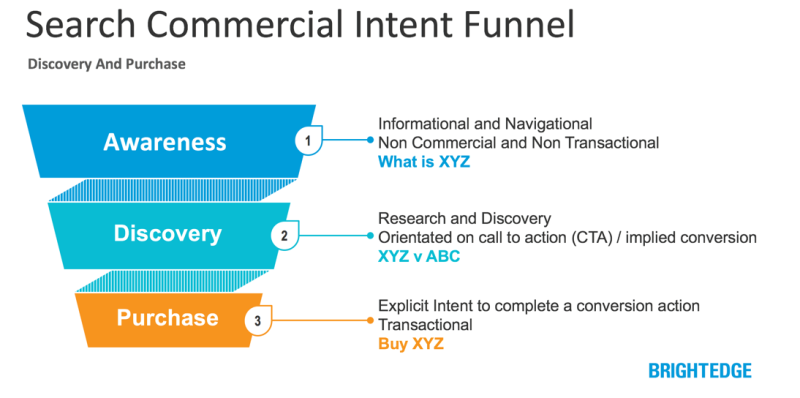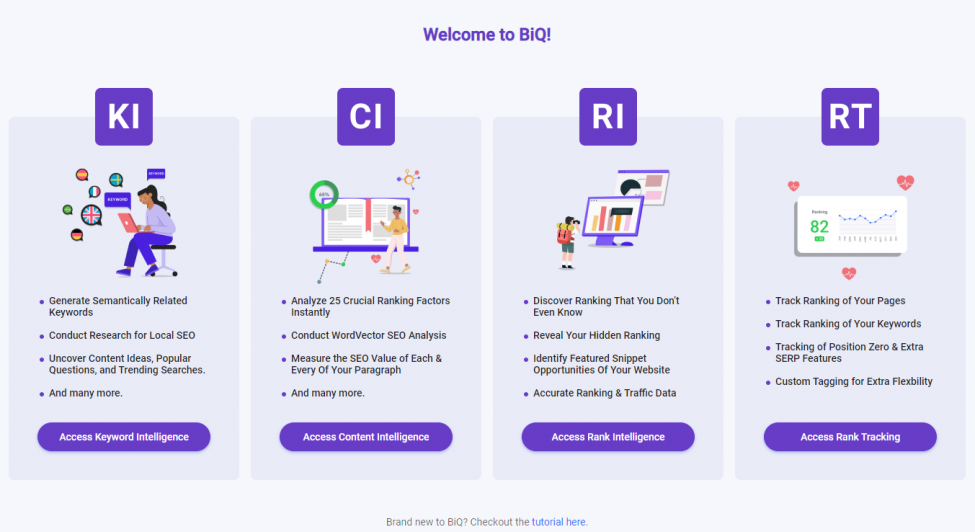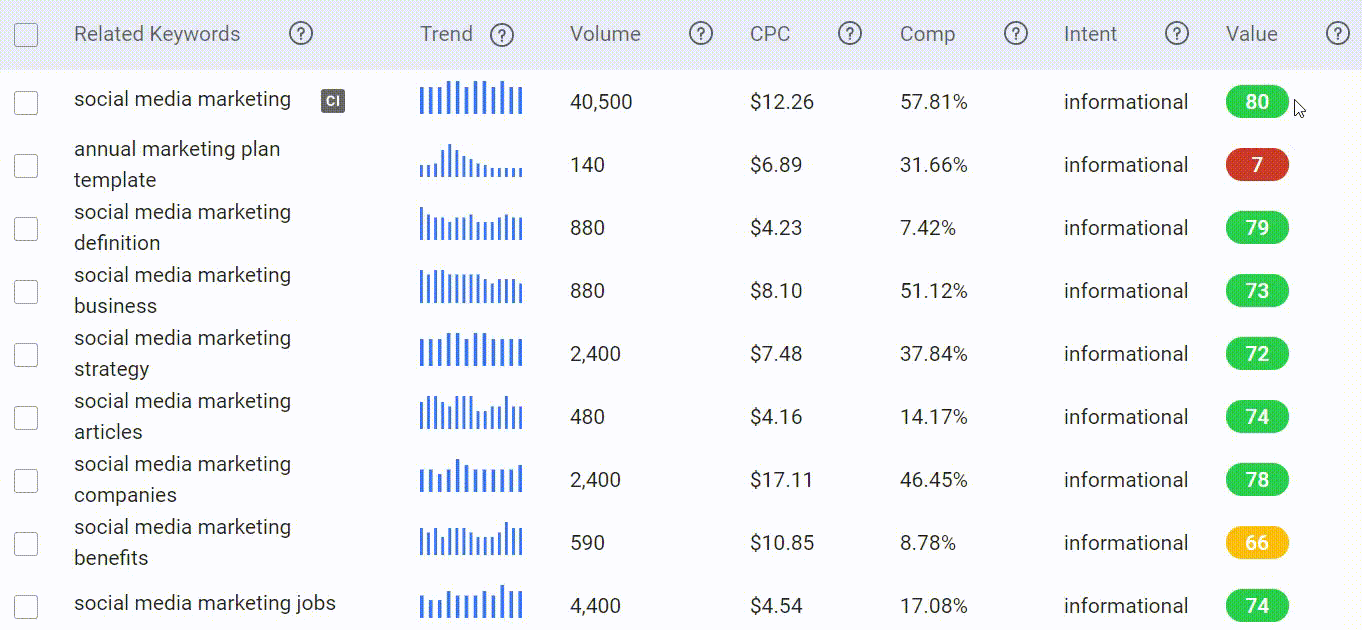Your works should always be directed with an intention if you want to create high-converting content. That's where commercial intent keywords come into play.
If you have a high-ranking website, you have accomplished a greater milestone in content marketing.
However, such a website is of no use if it does not bring in any revenue. You should have an effective roadmap if your website strategy is to be successful. Commercial intent keywords are very important in driving targeted traffic to your website and guaranteeing high conversions.
But what are commercial intent keywords, how are they used, and how do you find them?
Read on to learn more about these types of keywords and how to use them to improve your online marketing strategy.
What is Search Intent?
Content marketing involves creating and distributing relevant and valuable content aimed at compelling prospects to make a purchase decision. The success of any content marketing strategy depends largely on the understanding of the users’ search intent.

Search intent is the reason behind a person’s search query. Someone will key in a search term for various reasons such as searching for a specific site, planning to buy a service or product, or looking for learning materials.
So, why should you worry about the user search intent?
When it comes to content marketing, building authority in your niche is an important element of success. However, you cannot achieve this if you do not focus on the user search intent.
Understanding the search intent allows you to create valuable and relevant content that matches your users’ search queries. Your audience will view you as someone who knows their business and cares about addressing the customers’ needs.
If you align your content with the search intent, the chances are high that Google and other search engines will show users your content because they want to see that. For a successful search engine optimization process, you cannot run away from being relevant. Here is where it becomes necessary to know how to use commercial intent keywords effectively.
Commercial Intent Keywords and How to Use Them
Now that you know the importance of being relevant when creating content for your blog and website, how do you determine what keywords work best for your marketing strategy?
Before you use any keywords in your content creation process, you must evaluate the probability of an individual using them and even the likelihood of them becoming a prospect. The best way to do this is by examining the percentage of users advertising in Google AdWords using the specific keyword you want to use.
Is commercial intent really important in keyword research?

If you asked a group of content marketers the number one mistake, they make in their marketing, not many will agree that they don’t spend considerable time learning about the user intent. Numerous SEO experts say that understanding the commercial intent is highly significant in successful content marketing compared to focusing on the search volume.
If you have a high-traffic site that is barely converting, the chances are high that you created content based on informational keywords. Usually, users visiting your website from informational searches are the hardest to convert. However, if you follow the right process, you can come up with keywords often used by potential buyers, those ready to make a transaction, and it becomes easier to convert a large number of your visitors.
Types of Commercial Intent Keywords
Commercial intent keywords are divided into four major categories – informational, navigational, commercial investigation, and transactional.

(1). Informational: a large percentage of internet searches consists of informational keywords. The most common informational search cases include online news, general research, and surfing the internet for fun.
Usually, informational keywords target users searching for information about a particular subject. A few examples of informational searches include:
- Football live scores
- Joe Biden
- Who is Osama?
While you can make some money from informational keywords, you will need to attract huge traffic and monetize your site effectively through ad placements. The audience coming in from informational keywords are also more likely categorized at the top of the funnel, which would need a longer time to mature before they convert.
(2). Navigational keywords: navigational keywords can be either transactional or informational. Usually, such keywords target users who are looking for something that is either the URL or the product itself. Carrying out effective market analysis can help you establish the appropriate use of intent and align your content with it.
(3). Commercial investigation: commercial investigation keywords are meant for users looking for a particular service or product but have not decided on what option works best for them. The most common scenarios of commercial investigation keywords are around comparisons and reviews.
Here are a few commercial investigation search examples:
- Samsung vs. Apple
- Best energy drink
- Convertkit Review
These audiences tend to be lower down the funnel, so put in extra effort in your content targeting these keywords. Keep them on your website by providing more information that can guide them down the funnel.
(4). Transactional: the transactional keywords form the largest percentage of the keywords that you can use to make money. These are the keywords you need to focus more on, especially when doing your search engine optimization. Good examples of transactional keywords could include keyword + review, keyword + deal, keyword + coupon, or keyword + buy.
For example, someone planning to buy a Samsung TV would probably key in a search query such as Samsung TV model review. Such a keyword would be rank high compared to something like digital TV, although this key phrase might be competitive in terms of the higher search volume.
How to Get Commercial Intent Keywords

Head over to BiQ Cloud, and open up the Keyword Intelligence tab.
Once you have inserted your main keyword, the program will run through its database to pull up a list of relevant keywords and other worthy information that can aid in achieving a higher conversion rate.
A very handy function here is you can sort the list through a specific intent, be it informational or transactional.
If you’re still having trouble choosing the best keywords for your audience, you can also refer to the value column. The higher the number, the more valuable the keyword is – in terms of SEO value, competition, and how good is the conversion rate.

Classes of Commercial Intent Keywords
Where you consider keywords as a significant sign of prospective customers, it would be more important to focus on commercial intent keywords. You must understand how to identify keywords with higher commercial intent.
Commercial intent keywords are grouped further into four classes – buy now keywords, product keywords, informational keywords, and tire kicker keywords.
1. Buy Now Keywords

Buy now keywords are used a few moments before a user makes a purchase. In most cases, users looking for these kinds of keywords are ready to buy a given product or service. The most common words forming major parts of buy now keywords include:
- Discount
- Coupon
- Shipping
- Deal
- Buy
For example, a user looking for a hosting provider would have queries such as “hosting discount,” “hosting deals”, and “buy hosting”, etc.
Expectedly, these keywords have a high conversion rate even though they may not have a huge search volume.
2. Product Commercial Intent Keywords
Product keywords are another bunch of highly valuable class of commercial intent keywords. Despite this class of keywords converting highly, the leads are often a bit hesitant compared to the “buy now” keywords.
Here are a few examples of product keywords:
- Brand-name specific like Nike shoes
- Affordable
- Best
- Specific products such as Techno Spark 4
The value of the product keywords depends on the line of business you are operating. For instance, you will find that product-specific and branded keywords will convert quite well though they are severely competitive.
If your focus is on product keywords, you must know the difference between product and lead searches. There are cases where your leads will require a little conviction to turn in to paying customers.
3. Informational Commercial Keywords
The majority of the keywords that you will come across online are primarily informational. The reason for this is there are many people who search for information without the intent of buying. While the informational keywords are not meant for high conversion rate, you cannot avoid them because they can still contribute to your site’s overall traffic.
The common informational keywords include words such as:
- Best way to
- How to
- I need to
- Guide to
- Tips
You can take advantage of such keywords by focusing on low competition and high search volume informational keywords. Develop content based on such keywords and then build a strong email list from the web visitors. When a time comes for them to buy, they will remember the person or site that helped them with certain information, basically nurturing them down the sales funnel. That’s how you will convert them.
4. Tire Kicker Keywords
There are internet searches that have a low probability of convert, at least not at the moment. Such are the tire kicker keywords, and they are usually made up of words such as:
- Download
- Free
- Torrent
- …for free
A keyword phrase like “watch football online free” is a perfect example of tire kicker keywords. The probability that you can convert any lead from this keyword is almost zero.
How to Make the Most out of Search Intent Queries?
Search intent queries differ significantly from one user to the other. Your goal, especially when creating ads or doing search engine optimization, is to put more effort and money into search queries that have a high probability of bringing you some revenue.
The best way to make the most out of your marketing is to focus on search intent queries at each customer stage in the funnel. For instance, when a customer is at the top of the funnel, they will be more interested in gaining information on a particular subject. So, you target them with informational keywords.
As the lead moves down the funnel, navigational queries become much more common in their internet searches. At this stage, you need to create content based on navigational keywords within the users’ context.
Once the user has gained the necessary information and learned how to navigate a given subject, they would want to purchase. Their queries have buyer intent, so you have to help them make the purchase decision.
Understanding the various search intent queries depending on the buyer journey can help you create targeted content. Therefore, you will have to focus on content that aligns with the buyer’s needs, actions, and behaviors from the top to the bottom of the sales funnel.




